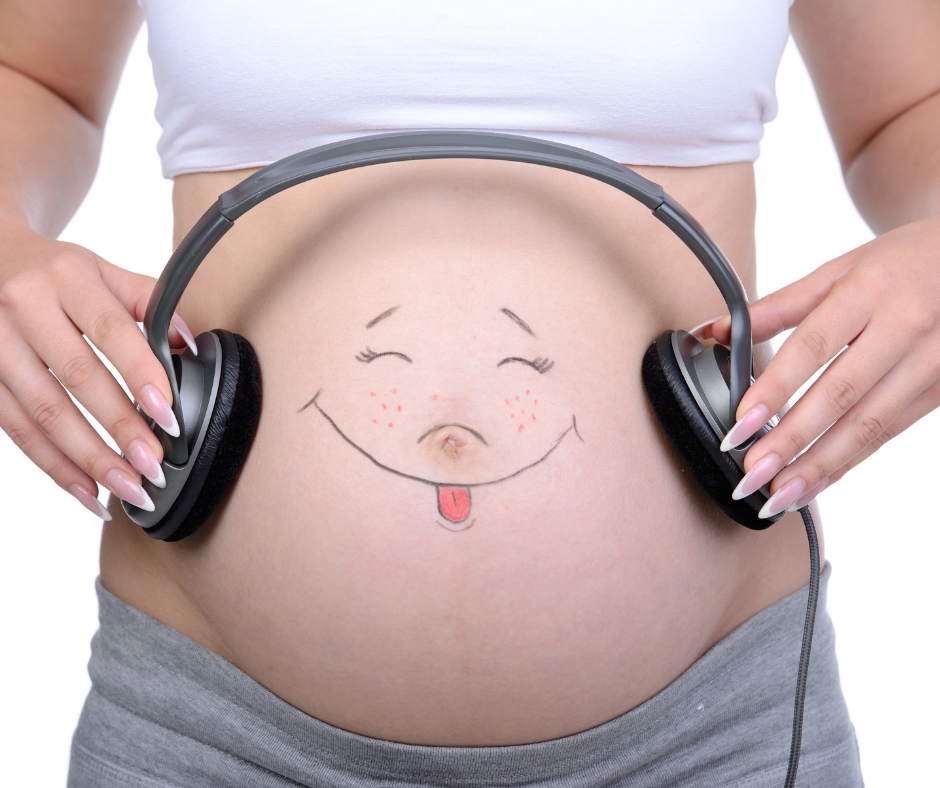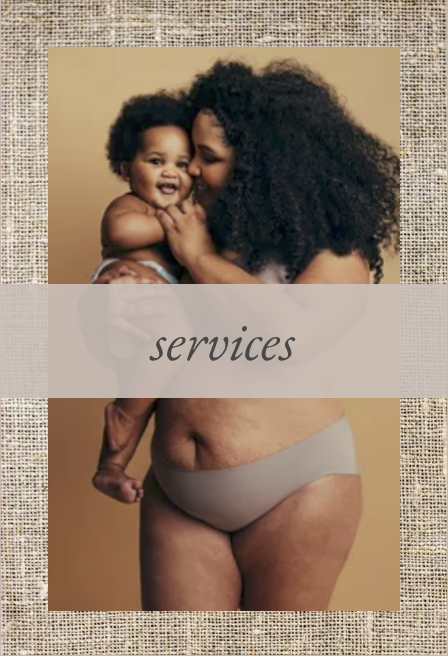Kim@BirthingDays.com | 541-733-4002
We all want our children to have the best start in life. But how can you set your child up for success….right from the very beginning?
Supporting your baby’s healthy brain development starts while they’re still in the womb! Even though they haven’t entered the world yet, your baby is growing and developing in amazing ways.
That’s why it’s so important to foster a healthy environment for your little one during pregnancy.
Early Brain Development:
Did you know that your baby’s brain begins to develop in the first few weeks after conception (The Urban Child Institute)? Pretty amazing, huh?
By the seventh week of pregnancy, your little one has already developed its first neurons. These neurons lay the foundation for forming their spinal cord and making their first movements!
And as you enter the second trimester, your baby’s brain begins to grow in size and complexity. The outer layer of your baby’s brain — the cerebral cortex — thickens which allows your little one to begin receiving sensory information about the world around them.
That’s why your baby can start to hear sounds during the second trimester — your tummy growling, the blood rushing through your placenta…even your voice! The development of their brain also gives them the ability to start moving around. It won’t be long before you start to feel those butterfly kicks and light jabs,
And by the third trimester, your baby’s brain has become so developed that it can actually respond to its external environment. They recognize certain sounds, breathe, and have all the mental and physical capacities that they’ll need to survive on their own once they’re born.
By the time you hold your sweet newborn in your arms, their brain is ready to support the early learning that will take place as they adjust to their new environment…learning to chest/breastfeed, sleep on their own, hold your hand, smile, and laugh!
That’s why it’s so important to support your child’s brain development well before they’re born. Here are 4 simple steps to foster your little one’s cognitive development.
4 Essential Steps to Support Your Baby’s Brain Development…in the Womb!
1. Exercise During Pregnancy Benefits Brain Development
This may seem like a no-brainer, but it’s still important to note that physical exercise during pregnancy is vital for you and your baby’s health. Physical activity can reduce your likelihood of experiencing certain problems during pregnancy:
- Diabetes
- High blood pressure
- Heart conditions
Regular physical activity can also help you to manage stress, sleep better, and quit smoking.
Exercise has also been shown in studies to have positive effects on your baby’s brain (Scientific World Journal). Physical activity can foster your baby’s brain development including how they recognize and create memories about the environment around them.
So, if you were exercising regularly before pregnancy….keep it up! The Centers for Disease Control and Prevention (CDC) recommends 30 minutes of moderate to intense activity five days a week (CDC).
But if you haven’t been active, or are starting to exercise again after a bit of a break, that’s ok! Start slow. Pay attention to your body. And if you have any questions or concerns about what type of exercise — and how much! — is right for you, talk to your healthcare provider.
Here are some great exercise ideas to get you started (March of Dimes):
- Brisk walking
- Swimming
- Riding a stationary bike
- Yoga and Pilates
- Low-impact aerobic exercises
- Strength training
2. Foods That Help Develop Your Baby’s Brain
Maintaining a healthy weight and eating a balanced diet is always beneficial for your health, whether you’re planning to conceive, pregnant, or in the early stages of new parenthood.
Here are a few simple steps you can take to improve your diet — no matter what phase of life you’re in:
- Reduce empty calories, artificial sweeteners, and caffeine.
- Eat foods that are high in protein.
- Eat lots of fruits, vegetables, grains, and some full-fat organic dairy products.
There are also certain vitamins and nutrients that your baby needs to foster healthy growth and development — both in the womb and beyond.
Folate:
Getting enough folate is an important part of having a healthy pregnancy. Folate helps protect your baby’s brain by preventing neural tube defects which can damage their brain and spine (CDC).
The best way to get folate is from foods such as (CDC):
- Beans, peas, and lentils
- Oranges and orange juice
- Asparagus and broccoli
- Dark leafy green vegetables such as spinach and mustard greens
- Calf’s liver and chicken liver
But it can be difficult for most birthing people to get the recommended daily amount of folate through food alone. That’s why you should aim to supplement with 600-800 mcg of folate each day at least 1 month before pregnancy and through the first 12 weeks of pregnancy.
You can make sure you’re getting enough folate by:
- Taking a multivitamin
- Taking a prenatal vitamin
- Taking a supplement that has folate
Note: Make sure to check your multivitamin, because most products contain folic acid and not folate (Chris Kresser.com). Look for products that contain the Metfolin brand, or list “5-methyltetrahydrofolate” or “5-MTHF” on the label. Avoid products that say “folic acid” on the label.
Choline:
Making sure you get enough choline during your pregnancy can have life-long benefits for your baby’s brain (FASEB Journal). Choline helps your child’s brain and spinal cord develop properly (National Institute of Health). It also reduces their risk of neural tube defects and improves how their memory functions throughout the rest of their life!
Birthing people should try to eat 450 mg of choline per day (this would equal roughly 4 eggs per day). Choline can be found in foods like:
- Egg yolks
- Lean red meat
- Fish
- Poultry
- Legumes like lentils, chickpeas, peas, beans, soybeans, and peanuts
- Nuts
- Cruciferous vegetables like broccoli, bok choy, brussel sprouts, cabbage, cauliflower
Omega-3 Fatty Acids / DHA:
An important building block for your baby’s brain development is docosahexaenoic acid (DHA), which is a type of omega-3 fatty acid. While you are pregnant, omega-3s are a critical building block for developing your baby’s brain, eyes, and nervous system (American Pregnancy Association).
Omega-3s are especially important during the last trimester of pregnancy as your baby’s brain goes through the most rapid period of growth and development (Nutrients Journal).
The best source of omega-3s is from wild cold-water fish like:
- Salmon
- Sardines
- Anchovies
- Herring
Even if you eat a healthy and balanced diet, it can be difficult to make sure you’re getting enough of these essential nutrients throughout pregnancy. That’s where a high-quality prenatal vitamin can help fill in the gaps (Mayo Clinic).
A prenatal vitamin will contain these essential vitamins — in addition to others — that will foster your baby’s growth and development.
3. Reading To Your Baby (Even During Pregnancy!) Promotes Early Language Development
You may have heard that reading to your baby is an important part of pregnancy. But you may wonder…does this actually have benefits for your little one?
The short answer? Yes!
Your baby can start to hear sounds around 18 weeks of pregnancy. And by 27-30 weeks, they are able to learn, recognize and respond to voices and familiar sounds.
When your baby is exposed to the sound of your voice — and even your heartbeat — this actually develops and strengthens the part of their brain that processes sound and language (PNAS).
Their heart rate will actually increase when they hear your voice as compared to a stranger’s (Queen’s University). This means your little one is more alert and paying closer attention when they hear your voice.
That’s why reading out loud, having conversations with your partner and friends, and singing songs can be beneficial for helping your baby’s brain development.
But what about playing music for your baby in the womb? If you enjoy listening to music — by all means, do so. But at this point, there is no link between music and your baby’s brain development (Sanford Health).
4. Sleep Quality Affects Your Baby’s Development
Sleep has also been shown to affect your baby’s brain development (Nature). Getting plenty of rest and quality sleep will help you to minimize and manage stress. It will also help your baby to have the best opportunity to develop their emotional and cognitive functions (Molecular Brain).
But poor sleep, sleep loss, or insomnia can cause additional stress on your baby while they’re in the womb. This can have negative effects on their brain development.
So, do your best to get plenty of quality sleep. And take a nap during the daytime if you need one.
Pregnancy can be a stressful time full of changes. It’s totally normal to experience times of stress or anxiety. But if these worries are causing you to have trouble falling asleep or staying asleep, try these helpful tips (Sleep Foundation):
- Find a more comfortable sleep position.
- Eat and drink strategically: Reduce caffeine, avoid liquids that can trigger acid reflux, and limit food and liquids before bed.
- Improve your sleep hygiene: Go to bed at the same time each night, limit exercise before bed, and reduce screen time and non-relaxing activities while in bed.
- Ensure healthy breathing: Try raising your head a bit or using a humidifier.
- Soothe your legs: Reduce leg cramps by performing gentle leg stretches before bed, exercising, and getting plenty of calcium.
- Ease your worries: Incorporate calming practices into your day like journaling, yoga, meditation, and breathing exercises.
- Avoid sleep aids: If you are tempted to take herbal or over-the-counter supplements for sleep during pregnancy, check with a knowledgeable professional first. Magnesium is a safe mineral supplement that helps many achieve better sleep.
Notes From Your Doula
Focusing on each of these four areas will help you to have a happier and healthier pregnancy — so you can have peace of mind and confidence that you’re setting your little one up for success by supporting their healthy brain development.
To learn more about Preparing for Birth check out my childbirth classes.




